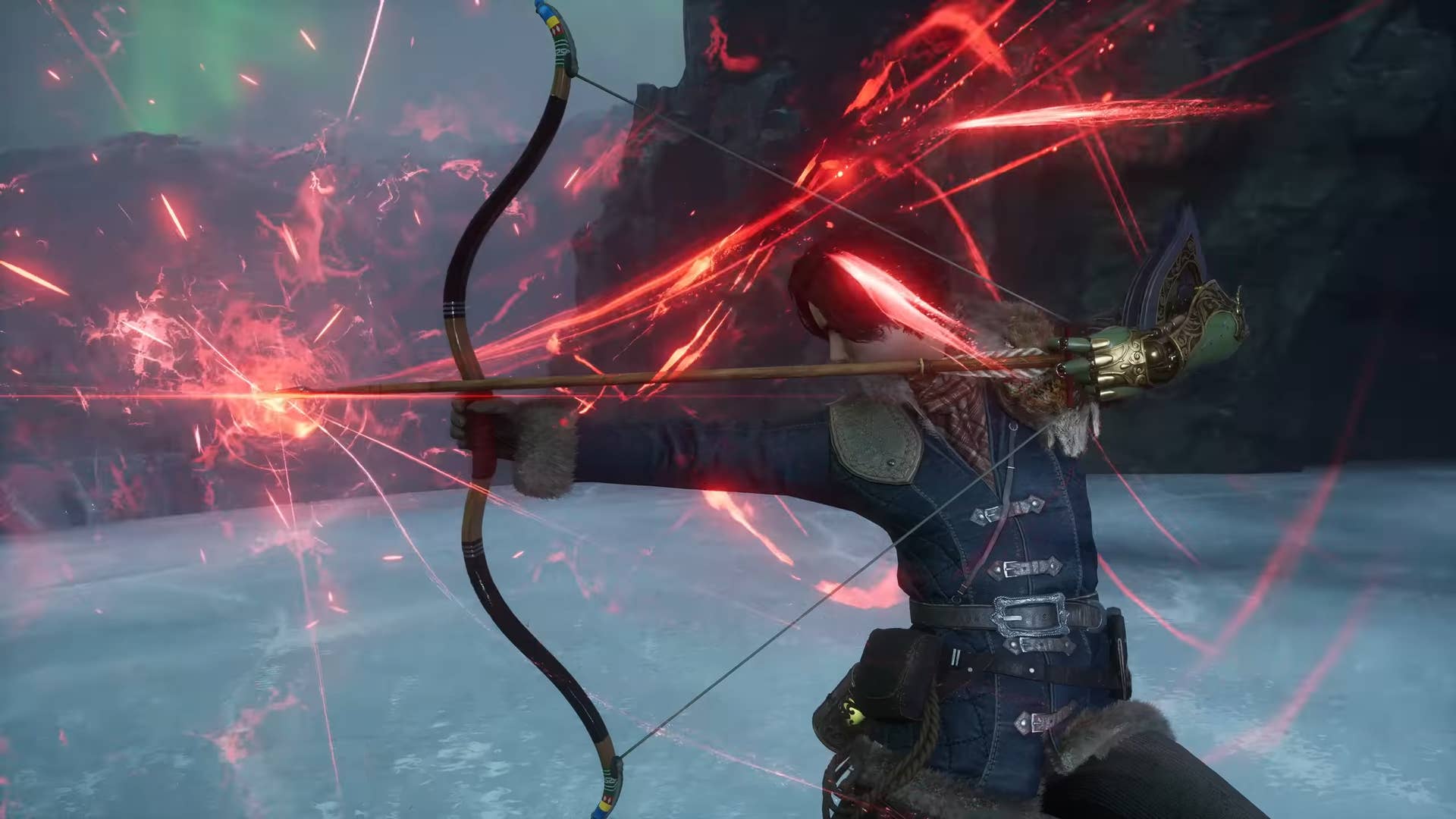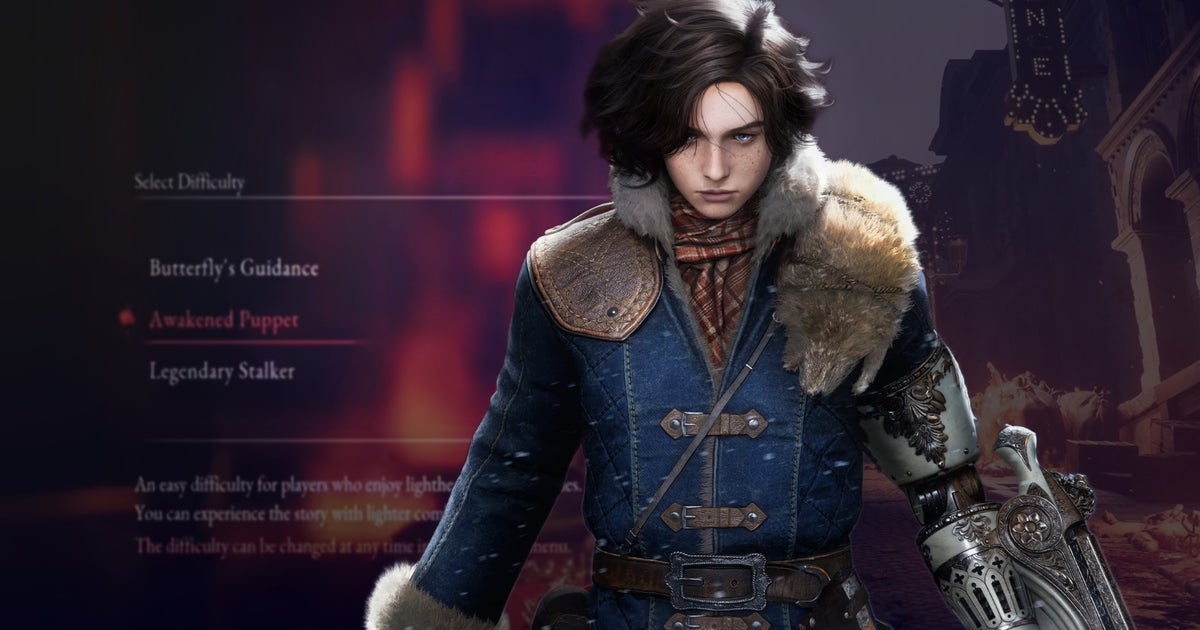It’s usually the dogs. Every Souls player knows how infuriating they can be as enemies, leaping from behind corners, gnashing their jaws, surprising players before swiftly removing a decent chunk of their health. If you’ve played Bloodborne, you’ll know what I mean.
That comparison is how I started a preview of Lies of P before it came out. In that particular demo, the puppet dogs seemed positively docile. This can’t be a real Soulslike, I thought, can it? In the short section played, it seemed too derivative of FromSoftware‘s work and missed the mark.
I was wrong, though. Once I played the full game – and after some pre-launch tweaking – I absolutely loved Lies of P. To me, it’s the best non-FromSoft Soulslike. And now, with the release of the Overture DLC, we have a chance to reappraise the full game in its entirety. After all, even director Choi Ji-won likened this to a “director’s cut” of the game.
Let’s start with a simple question: what fresh ideas does Lie of P bring to the genre? It certainly bears the familiar hallmarks: the punishing difficulty and calculated combat, the bonfire-esque checkpoints, currency loss on death. This perhaps caused many to dismiss the game as a simple imitator. That, I think, would be a mistake.
Chief of the game’s fresh ideas is its weapon customisation. Too often in Souls games, players acquire a fancy new weapon only to find it’s unusable due to player stats, often requiring a respec. Lies of P flips this around, and instead allows players to swap around blades and handles to create new weapons to fit their existing build. Find a new sword with unique combat moves, but its attributes don’t match your character? Swap the handles around and whack on a new crank and hey presto, you’ve got a new favourite weapon. It all fits with the tinkering, mechanical vibe of the game alongside the skill tree related to the protagonist’s P-Organ (stop sniggering at the back).
Weapon customisation is as much a new feature as it is a quality of life improvement. There are others too, such as highlighting when you have enough Ergo to level up, or where quest-specific characters are located. The latter in particular makes following the plot more coherent alongside more focused narrative design, while overall the storytelling is less abstruse than the hidden lore of FromSoftware’s work.
The core of the game, though, is combat, and Lies of P still manages to find its own rhythm within the genre. I still think the boy protagonist runs a little stiffly, but the game’s developer has cherry-picked from across the Soulsborne games for its combat mechanics that ultimately feel different enough. Perfect blocking acts like Sekiro’s parry, with enemies gradually building towards a vulnerable groggy status, while regular blocks eat away at health that can be reacquired Bloodborne-style through subsequent attacks. Between dodging or blocking, there’s variety to your combat approach, enhanced by the inclusion of special Fable Arts to punctuate key moments and swappable arm gadgets. This all comes together during the many boss fights against a fearsome menagerie of sleek, corrupted puppets and demonic beasts with awkward growths.

This is all present and correct in Overture, too, which benefits from fresh weapons and gadgets to further shake up combat – I’m a big fan of the Wolverine-esque slashing claws. However, it reminded me more of Resident Evil rather than FromSoftware. It begins in a decrepit zoo, cages ripped open by zombified animals: the aforementioned dogs, lumbering, frozen elephants, and horrible – horrible – kangaroos. From there the DLC descends into laboratories of failed scientific experiments and strange facilities, the sort you’d expect hidden under the Spencer Mansion, before eventually arriving at its own lavish yet creepy estate. Lies of P has always had a horror tone, but here the setting shifts away from the Belle Epoque steampunk aesthetic of its opening hours – what, arguably, made the game most unique.
Overture is largely more of the same, then: more great bosses, great weapons, great combat. It’s a hugely enjoyable addition to the base game, that rounds out its narrative with an origin story that ties up loose threads and offers extraneous lore for fans who go hunting for it.
As for Overture’s new zombified dogs? They’re vile, violent things, with snapping jaws and aggressively bounding animations. Just as they should be.
But then there are the new difficulty options, which have been implemented to solve that typical Soulslike problem of overt challenge – especially when it comes to DLC. Overcoming adversity may be a core tenet of the genre, but this has long raised questions about accessibility and the idea of difficulty as a spectrum. That’s only been exacerbated by FromSoftware’s propensity to increase that challenge in DLC.
Elden Ring‘s DLC Shadow of the Erdtree was criticised for its high difficulty, but balance was an almost impossible task when millions of players arrived at different skill levels – from NG+7 expert runs, to first timers. It’s preposterous to expect the developer to create additional content embedded in the game that can satisfy the appetite for difficulty of such a wide spectrum of players. Its solution was Scadutree Fragments, though that wasn’t initially clear to players.
.png)
Lies of P: Overture faces a similar uphill battle. Just as FromSoftware did, the studio chose to make the DLC an imposing challenge. I always find this somewhat baffling: players may be over-levelled, but isn’t it nice to just have an extension to the campaign rather than immediately be pummelled by a brutally punishing regular enemy? A dog perhaps? Thankfully, a patch has since been released with balance adjustments, but initially at least Overture was discouragingly difficult.
And yet, Lies of P has offered players a lifeline, with its difficulty options ultimately being the game’s best new feature of all. Sure, offering lower difficulty options is a blunt solution to the problem of integrating DLC, but Overture’s extreme challenge is a key example of why Soulslikes should have these options in the first place.
I initially had issues even getting to the DLC. It was only accessible after chapter nine of the base game and, as I’d previously started a new game plus run, I had to replay the majority of the game all over again (this has since been rectified). My solution was to bump the difficulty down to the easiest level and speedrun through to get to the new stuff. This, in itself, was a cathartic rush as I swiped down enemies with ease and got my rusty P-Organ back into shape after a year on pause. It’s a different way to tackle a Soulslike, but the change of pace was empowering.
Upon reaching the DLC I was able to appropriately amend the difficulty, before eventually settling back to its original level following recent patches. In short, I could modify the challenge based on my own circumstances. More importantly, these changes impact the base game too, so more people can try out what is now a very rare thing: an approachable Soulslike.
It’s clear the shadow of FromSoftware still looms over the industry like a giant sparkling Erdtree; the gold standard. Yet as a complete experience with its DLC, Lies of P stands apart from other Soulslikes. The strings of this silvery puppet may be attached, but it’s dancing to its own beat.
